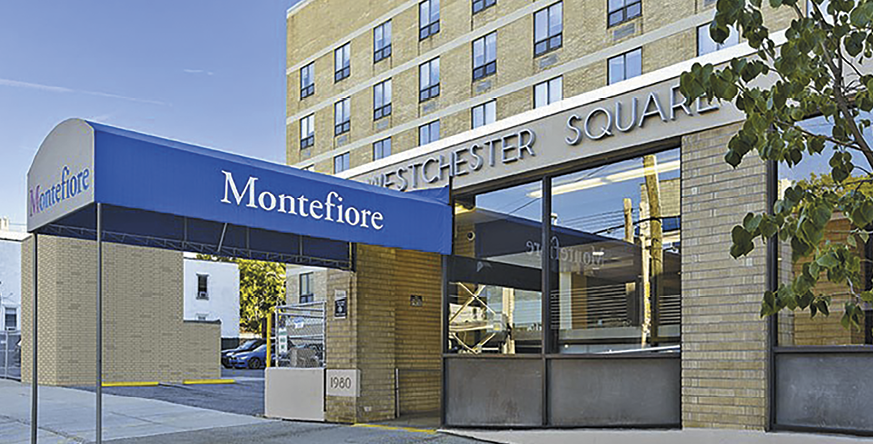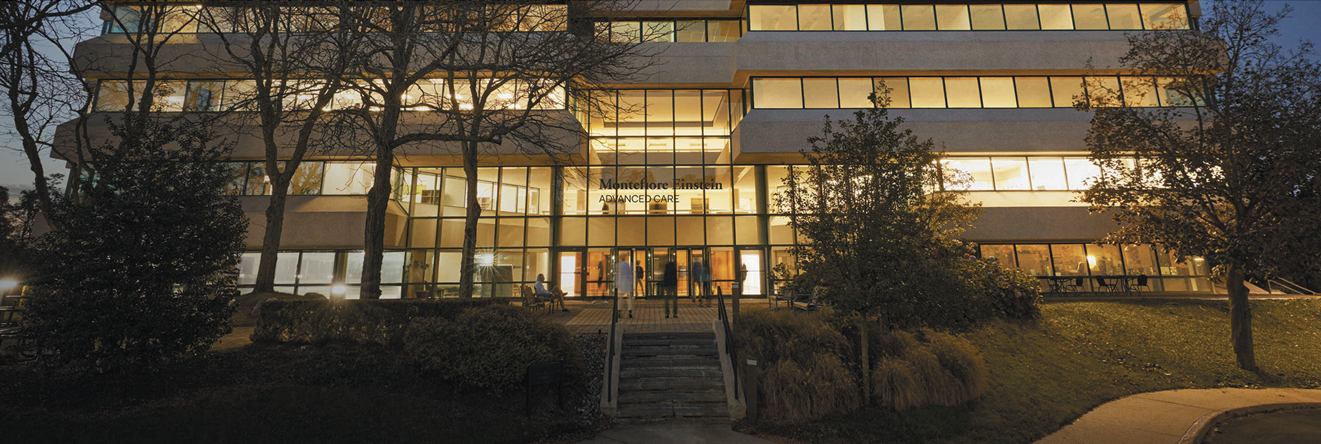- Home
- Media Kit
- MediaJet
- Current Issue
- Past Issues
- Ad Specs-Submission
- Reprints (PDF)
- Photo Specifications (PDF)
- Contact Us
- PRIVACY POLICY
- TERMS OF USE
![]()
ONLINE
![]()
ONLINE

Excellence Without
The Arrogance
Editors’ Note
Jonathan Edward Alpert, MD, PhD, is Dorothy and Marty Silverman Chair, Psychiatry and Behavioral Sciences at Montefiore Einstein and Professor, Psychiatry, Neuroscience and Pediatrics at the Albert Einstein College of Medicine. Alpert’s clinical focus centers on the evaluation and treatment of complex mood and anxiety disorders.
After obtaining his Bachelor of Arts at Yale College in 1977, Alpert earned his Doctor of Medicine at Yale University in 1986. He earned his Doctor of Philosophy in behavioral pharmacology at the University of Cambridge in Cambridge, England, in 1987 on a Marshall Scholarship. Alpert completed residency training in pediatrics at the Boston Children’s Hospital in 1989. He then completed his psychiatry residency at McLean Hospital in 1992, where he was Chief Resident in psychopharmacology in his final year. He then held faculty and leadership roles at the Massachusetts General Hospital and Harvard Medical School through 2017.
Alpert’s research focuses on the treatment and biomarkers related to major depressive disorder and bipolar disorder. He has been principal investigator and co-investigator on numerous funded research projects and his work has been published in many peer-reviewed publications. Alpert serves on the editorial board of several psychiatry journals and has over 240 publications. He has also given many national and international invited presentations.
Alpert is a member of the American Psychiatric Association (APA), the American Society of Clinical Psychopharmacology, the American College of Psychiatrists, the Association of Chairs of Departments of Psychiatry, the Society of Biological Psychiatry and the Anxiety and Depression Association, among others. He chairs the Council on Research of the APA. Alpert has received teaching, mentorship and service awards from the Massachusetts General Hospital, Partners HealthCare, Harvard Medical School, the Depression Bipolar Support Alliance, the Association for Behavioral and Cognitive Therapies and the American Psychiatric Association.
Institution Brief
Montefiore Medicine (montefiore.org) is a leading academic medical organization comprised of Montefiore Health System and Albert Einstein College of Medicine. Together they are pioneering patient-centered research and providing exceptional personalized care with over six million patient interactions a year in communities across the Bronx, Westchester and the Hudson Valley. Montefiore Health System is comprised of 10 member hospitals, including the Children’s Hospital at Montefiore, Burke Rehabilitation Hospital, White Plains Hospital, and more than 200 outpatient ambulatory care sites that provide coordinated, comprehensive care to patients and their families. Albert Einstein College of Medicine, home to nearly 1,000 students in its MD, PhD, and combined MD/PhD programs, is one of the nation’s preeminent centers for research, medical education and clinical investigation.

Child and Adolescent Psychiatry Emergency Service
in Children’s Hospital at Montefiore
How do you describe Montefiore’s culture and values?
From my perspective, Montefiore and Albert Einstein College of Medicine together represent one of just a few institutions where the twin goals of promoting biomedical science (including basic science research) and health equity are so effectively entwined.
As a single academic health system serving more than 1.4 million people in the Bronx, one of the most diverse and economically poorest communities in the country, Montefiore Einstein is ever aware of its responsibilities to invest in the “health and wealth” of the Bronx and other similar places, through science, respect, and active partnerships. Many of our basic science departments sponsor pipeline programs for Bronx high school students like BEYOND ALBERT and local college students. Often faculty members who have NIH funding and roles in national organizations provide expert care to Bronx patients and families. Addressing social factors that impact health are part of our routine; access to nutritious food, education, transportation, green spaces, parenting supports, and safe housing is understood to be critical to the overall health and well-being of our community.
Will you provide an overview of your role and areas of focus?
As chair of the Department of Psychiatry and Behavioral Sciences, my overriding focus is on advancing access to state-of-the-field, culturally responsive mental healthcare in the Bronx and surrounding regions. Another important effort is nurturing a department that serves as a model for other academic psychiatry teams serving diverse urban communities in under-resourced areas across the country.
My role includes working with colleagues to build strong general adult and child programs, offering treatment to individuals and families contending with mental illness and addictions. Additionally, we partner with other departments and programs – from Pediatrics, OB GYN, our NCI-designated Montefiore Einstein Comprehensive Cancer Center, Transplant Surgery, Medicine, Family Medicine, to Emergency Medicine – to integrate core mental health services and supports for each of these patient populations. For me, education and mentorship of the future generation of leaders in psychiatry and psychology is particularly meaningful. By training truly outstanding academically oriented, community focused mental health leaders we can improve access to mental healthcare for generations to come.
What have been the keys to the strength and leadership of Montefiore’s Department of Psychiatry and Behavioral Sciences?
“Excellence without the arrogance” is a defining strength within Montefiore Einstein Psychiatry and across the health system. As a community of academic psychiatrists, psychologists, and other mental health professionals and staff, we strive to conduct ourselves with professional and cultural humility in the service of delivering exceptional patient care, training, and scholarship.
We understand that accomplishing the mission really well – whether that mission involves a new clinical program, research project, or community initiative – is far more important than the individual who sits at the front of the table or who gets “credit.” Fortunately, our department is full of true team players and recognizes that most goals require a diversity of perspectives, skills, and multiple devoted hands-on deck, a philosophy I try to nurture by example.
Most of us, at some point in our journeys, decided on our career paths with the goal of earning the privilege of using our intellect, drive, education and values to helping others lead the best lives they can lead. In this respect our department draws enormous strength from the Bronx communities we serve. I believe we see less burnout among staff at Montefiore Einstein, versus places that have become more “corporatized” and detached from their communities. Being able to partner with the people of the Bronx, to support and advance the mental health, is a daily reminder of why we chose to do what we do; this is hugely energizing and grounding.

Montefiore Behavioral Health Center at Westchester Square
Will you discuss your views on the mental health crisis and what needs to be done to effectively address mental health concerns?
What we often refer to as “the mental health crisis” has multiple dimensions, reflecting both distinctly negative trends and a few that are positive.
On the negative side, over the past decade, rates of premature death from drug overdose have dramatically increased, while high rates of suicide persist among groups such as youth of color, which had for a time relatively lower rates of suicide. In the U.S., there is a substantial shortage of skilled mental health professionals for the growing number of people seeking mental health services, often translating into long wait times and in all too many instances, no care or putative care that does not meet evidence-based guidelines.
It is positive to see an increasing number of medical students with interest in psychiatry programs across the country, but we need to increase the number of residency training slots to meet the growing demand for expert care. Training allied professionals like nurse practitioners, who can team with psychiatrists, psychologists, and social workers to provide skilled care, is another step. We are learning also about the role of peer navigators, and how people with lived experience of mental illness or addiction, can provide additional scaffolding and practical support. I’m proud to share we were recently designated as a New York State Office of Mental Health Behavioral Health Center of Excellence (COE) and awarded a $7 million grant as part of this program. Through this funding, we plan to pilot new models of care, including programs where people who have had firsthand experiences with mental health conditions will provide support as patients transition to community settings.
Also among the positives is the increased number of people reaching out for care, which is not simply a reflection of a challenging era but also a demonstration of success in combating stigma against mental illness, addiction, and its treatments. Far more people, including from communities in which mental illness and addiction were historically viewed as flaws or even sins, are more knowledgeable about mental illness and the safe and effective treatments available.
At a societal level, we need to continue to learn about and address challenges to mental health, ranging from cyberbullying to social isolation.
At a population health level, we should proactively teach mental health skills and resilience building in classrooms, faith-based settings, and other community organizations, which are increasingly receptive to partnerships with mental health professionals. Early intervention such as providing very basic skills from cognitive behavioral therapy to children in middle school may help address some problems before they escalate and need formal treatment. We know that 74 percent of Bronx high school students report high levels of stress and anxiety and sadly, suicide among Bronx children ages 5-17 has doubled in the past decade. To begin to address these needs, Montefiore debuted the Child and Adolescent Psychiatry Emergency Service in our Children’s Hospital in 2019 and more recently opened an Adolescent Intensive Outpatient Program (IOP) last year.
At a clinical level, we need to ensure access to high quality, affordable mental healthcare is greatly expanded – through a concerted collaboration between insurers, mental health professionals, and state oversight bodies. Currently, few mental health professionals accept insurance products and when services are reimbursed payments are often not sufficient to cover the costs of care. As a result, while insurance companies appear to have ample provider networks, people who try to access mental health services end up with lists of clinicians who no longer accept patients. All too often, only individuals affluent enough to pay out of pocket can access care. Montefiore has practices which accept insurance, helping more patients get affordable care.

Montefiore Einstein Advanced Care - Westchester
How is Montefiore Einstein using a blend of research, education, and care to help partner with its patients to manage mental health concerns?
True partnership is the critical concept here. Some of the most impactful research we conduct at Montefiore Einstein involves stakeholders who actively participate in the formulation of research questions during the initial design, maximizing the usefulness to our community. Patient and family advisory groups inform the direction of our clinical programs and help us improve upon how we deliver care.
In the first weeks of their training, our psychiatry and psychology interns visit the neighborhoods we serve and are introduced to the critical importance of respect, empowerment, hope, and empathic curiosity – these elements are key to building trust and collaboration. From my vantage point, there is a remarkable absence of a town-gown divide between Montefiore Einstein and the Bronx communities. Instead, there is a recognition that we are all in it together to address mental health concerns affecting our communities.
What are some of the new models of care, both in New York and across the nation, to help fill traditional care gaps?
Montefiore Einstein has been a national leader in behavioral health integration, which is the addition of mental health services into primary care offices and offers the Montefiore School Health Program, the largest most comprehensive school health program in the country linked to an academic medical center.
More recently, Montefiore Einstein is among the pioneers of reverse integration, in which primary care medical services are co-located in mental health or addiction clinics. People with serious mental illness (e.g., schizophrenia, bipolar disorder) or addiction live on average 15-20 fewer years, primarily due to premature death from common causes such as heart disease, respiratory illness, and cancer. Reverse integration aims to address this glaring health disparity by delivering high quality medical care in locations where these patient populations already receive much of their care from teams they trust.
Multidisciplinary programs represent another model that provides “whole person” care for patients and their families as they seek treatment for complex and life-altering conditions. Our new Montefiore Einstein Comprehensive Brain Health Center brings together neurologists, neurosurgeons, psychiatrists, psychologists, and case managers to provide holistic care for individuals with conditions such as epilepsy, Parkinson’s disease, or stroke as well as mental health supports for their caregivers.
Given shortages in the mental health workforce, often pediatricians, family medicine physicians and obstetricians are at the front lines of evaluating and treating patients with mental health challenges. New models of care such as ProjectTeach in New York, in which Montefiore Einstein participates, or MCPAP in Massachusetts, are designed to remotely provide expert consultation in pediatric and perinatal psychiatry, as well as training and resources for non-psychiatric colleagues who are an invaluable component of mental healthcare for a majority of patients.
The incorporation of peer navigators into mental health programs is another important model increasingly adopted at Montefiore Einstein and nationally. People with mental health or addiction challenges often struggle with care transitions, moving from inpatient care to their first outpatient appointment is a time of high risk and loss to follow-up. Knowledgeable peers with lived experience can provide invaluable support to increase the likelihood of new patients successfully starting and continuing care they need.
Hybrid care models like partial hospitalization programs create an option for people who require intensive care but can safely return to the comfort of their homes in the evening. At Montefiore, we have plans for a new adult program that would allow up to 25 people at a time with severe mood and anxiety disorders spend the day (20+ hours weekly) in individual and group settings working towards their goals.
Did you know at an early age that you wanted to pursue a career in medicine and what has made the profession so special for you?
I was a relative latecomer to medicine, becoming a premed only in my junior year of college. I majored in psychology and philosophy with a long-standing intellectual interest in mind, brain, and behavior. Only after volunteering as a college sophomore at a school in New Haven for children and adolescents with autism did I recognize the profound and pervasive impact of neuropsychiatric conditions and the role physicians, including psychiatrists, can play in advancing knowledge about and treatment for these conditions.
I was also very fortunate at this time to come under the mentorship of a remarkable psychiatrist, Donald Cohen, who subsequently became director of the Yale Child Study Center, and to me his work represented the promise of contemporary psychiatry, bridging cutting edge insights from neuroscience and pharmacology with a deep-felt appreciation for the more humanistic dimensions of the field. Over decades in practice, the multifaceted richness of psychiatry remains an endless source of fascination and gratification for me. I remain ever grateful for the opportunity to be a physician. To be granted a license by society to use one’s training, skills, and values to provide care to fellow human beings at times of challenge in myriad intimate and respectful ways is truly a sacred privilege.
What advice do you offer to young people interested in pursuing a career in medicine?
As Aristotle wrote, “Where your talents and the needs of the world cross; there lies your vocation.” The world needs chefs, investment bankers, elementary school teachers, gardeners, sales managers, physicists, and poets. Medicine is an amazing vocation, but it is not unique in meeting far-ranging needs of society. If you are driven in equal measures by empathy and science, compelled not repelled by suffering, motivated to study hard not simply in order to be successful – but to be of value, thrive within the camaraderie of teams, and are willing to find ways to take good care of yourself while you take good care of others, you probably have the makings of a great physician.![]()